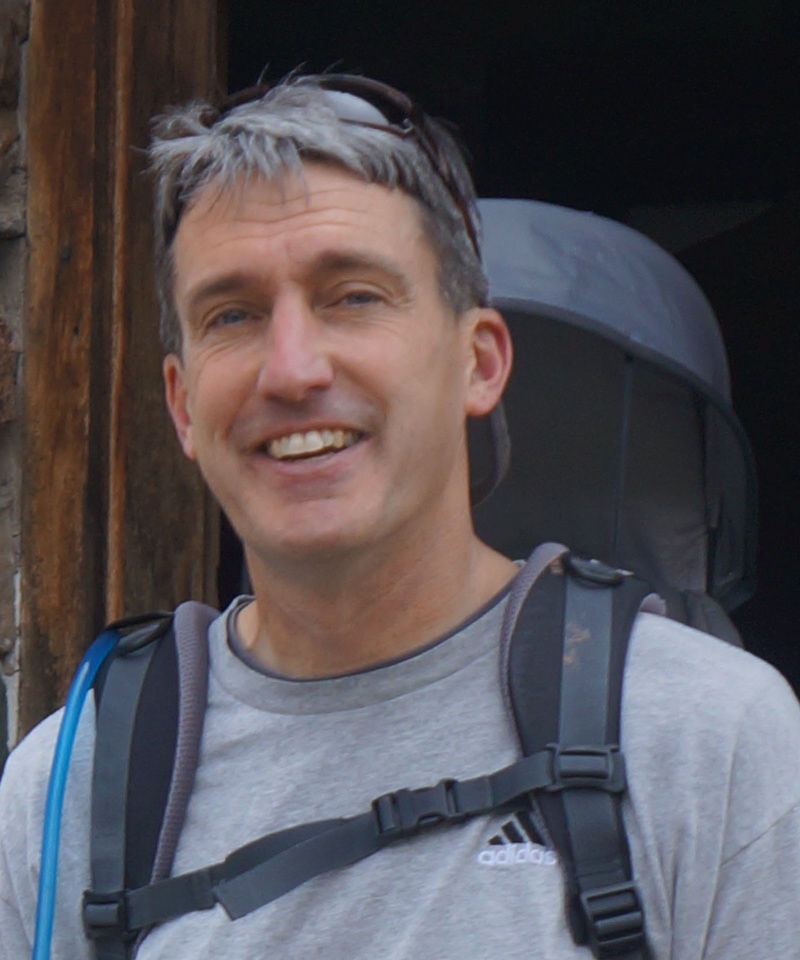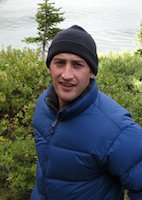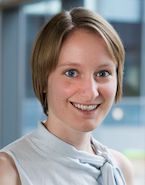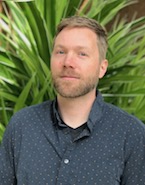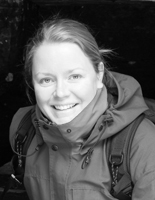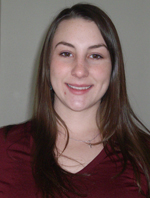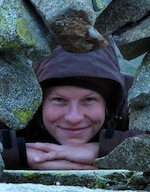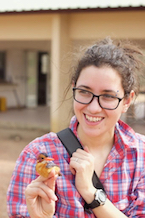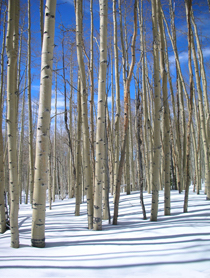Former lab members
Between 2004 and 2022, the people below worked together in the Buerkle lab at the University of Wyoming.
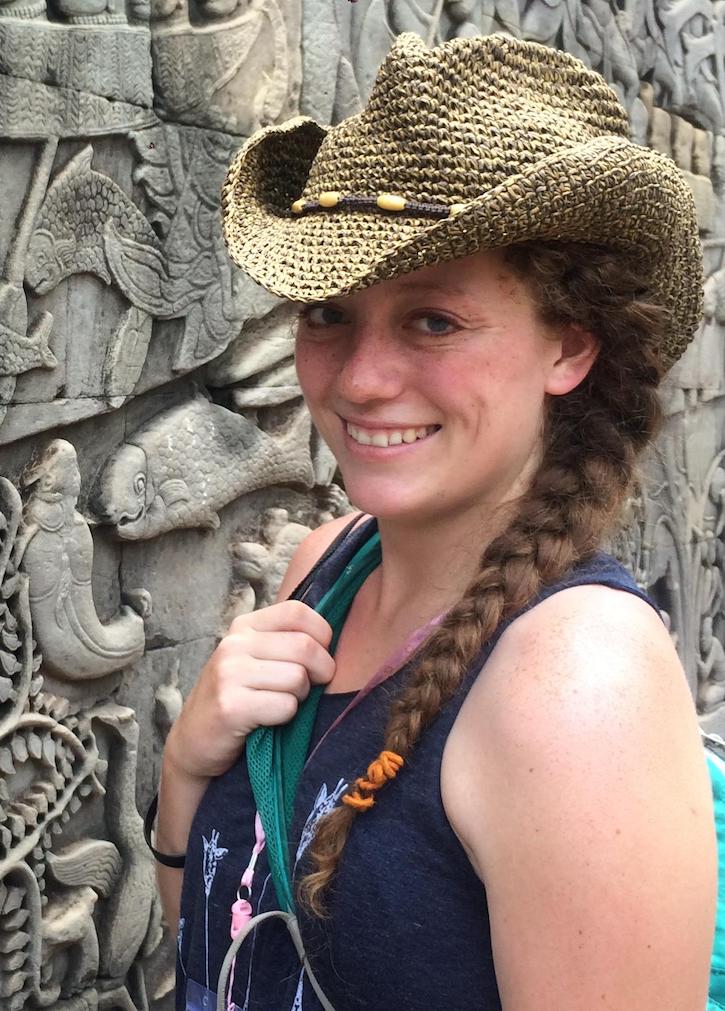
Ph.D. Student
Erin received her undergraduate degree in Animal and Veterinary Science, with a minor in Creative Writing. She is interested in population genetics, particularly of local and rare plants in the genus Penstemon. Her first two projects are considering the consequences of rarity for plant genetic diversity and plant microbiomes. Along with evolutionary biology, Erin is involved in many creative activities, including education and outreach through the microbestiary, and writing and podcasting fiction, painting, and pottery. She is continuing her Ph.D. with Dave Tank at UW.
Data scientist and former principal investigator
Research: At UW I worked on the evolutionary genetics of a variety
of organisms with the people on this page. I led major grants, the UW Data Science Center, and the Genome Technologies Laboratory. I enjoy analysis and writing computer code so much that I moved to Gencove and Illumina to
do more science.
Previous teaching: Computational Biology, Computational Biology Practicum, Population Genetics
Data Scientist, MX
John is trained as a paleoecologist. As a postdoc in the lab, he studied microbial communities in lakes and lake sediments along environmental gradients to learn about processes that affect taxon biogeography and community assembly. He also helped develop statistical models for biogeography and community ecology, with a particular interest in regression models for abundance along gradients, and using microbial abundance to infer past climates. He is now a data scientist working with the financial services firm MX.
Plant scientist at Bowery
Victoria is interested in how plants respond through adaptation and phenotypic plasticity to their environments. She received her Ph.D. from Pennsylvania State University, with Jesse Lasky. She was part of the modelscape consortium in 2021, where she competed sparse modeling approaches to statistical learning, helped develop a project on limits to predicting genotypes in natural systems, and achieved a shared goal of longer-term employment that combined data and plant science (Bowery).
Associate Professor, Utah State University
Zach completed his Ph.D. in the lab in the spring of 2012. He is
broadly interested in hybridization, both as an opportunity to
dissect components of reproductive isolation and for its creative
role in homoploid hybrid speciation. His current empirical research
involves hybridization and experimental evolution
in Lycaeides butterflies. He also develops analytical
approaches for population genomics.
Computational biologist at Biobot
Josh is an computational biologist and evolutionary ecologist who has studied plant-microbe and plant-insect interactions. As a postdoc he developed statistical models of microbial assemblages and used these in observational and experimental settings to build our knowledge of the processes that affect the biogeography and community ecology of microbes. He also built his expertise in machine learning and hierarchicial probability modeling, which he is now applying to analyses of wastewater for public health with Biobot.
Associate Professor,
Monia is interested in the processes of plant adaptation and speciation. She seeks evolutionary and biogeographic explanations for why a plant is living where it is, how it ended up there, and what made it possible for it to adapt to its environment. Her Ph.D. focused on dynamics of hybridization among six species of North American spruce and environmental correlates of genetic differentiation within two co-distributed species. She is inspiring students at Colorado Mountain College and was named the "2022 Leadville Faculty of the Year".
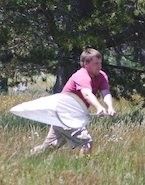
Postdoctoral researcher, University of Wyoming.
As a postdoctoral researcher in the Modelscape Consortium, Josh is leading a large project to compete computational methods for statistical learning. In particular, in highly dimensional data sets, what are the performance and trade-offs of methods for sparse learning. He is also leading multiple population genomics projects, including conservation genomics of butterflies and bighorn sheep.Previously he completed his Ph.D. and a postdoctoral position at the University of Nevada, Reno.
Clinical trial manager
Brittany worked in the lab for two years, first as an
undergraduate and then as a research assistant. She worked on
genetic variation in lodgepole pine and completed two projects on
population genetic variation in different species
of Penstemon. Thereafter she completed her M.A. at the
University of Colorado working with Becca Safran, and then returned to the University of
Wyoming as a research scientist for a few years. She completed her
Ph.D. in Microbiology and Immunology working with
Doug Kominsky.
Genomics Data Analyst, Agroscope
Doro is interested in speciation and hybridization, particularly in the mechanisms that are responsible for the buildup and maintenance of reproductive barriers between incompletely isolated species. She uses computer simulations to study how neutral and non-neutral evolutionary processes can affect the heterogeneity of introgression in hybrid genomes. She is further interested in how the information that resides in hybrid genomes can potentially be used to reveal the genetic architecture of reproductive isolation. Doro joined the lab for a year (2013-2014), after completing her Ph.D. in Christian Lexer's lab at the University of Fribourg. She supported her work in the lab thru a fellowship from the Swiss National Science Foundation.
Research scientist and lecturer, Utah State University
Lauren was a research scientist in the lab for a year but has been a long-term collaborator. She is interested in speciation, hybridization, and phylogeography. She is investigating the contribution of morphological characters to reproductive isolation in Lycaeides butterflies. As part of this research, she is working to identify genetic and developmental constraints on the evolution of wing patterns. In collaboration with other scientists and teachers, she has developed lessons for the secondary science classroom based on her research.
Assistant Professor, University of Guelph
Liz is interested in speciation, adaptation, and hybridization in aquatic systems, primarily in fish. For her Ph.D. she worked on sucker hybridization in the Colorado river basin in the mountain west. As a postdoc, she worked with Katie Wagner and Annika Walters on hybridization in trout. She is an assistant professor and computational biologist at the University of Guelph, where she continues innovative research on population genetics of fishes.
Assistant Professor, York University
Eryn was a postdoctoral researcher as part of the Modelscape Consortium. She brought her deep interest in data science and quantitative genetics to the group. Previously she completed her Ph.D. at Uppsala University and a postdoctoral fellowship at the University of Edinburgh. As a postdoc, she built on our understanding of variability in outcomes of secondary contact and hybridization, and competed computational methods for statistical learning. She started as an Assistant Professor at York in summer 2023.

Associate Professor, University of Nevada–Reno
Tom was a postdoctoral research scientist in the lab. His research is at the interface of ecology and evolutionary biology, specifically in the ecological processes that underlie population divergence, speciation, coevolution, and adaptive radiation. In his work he obtains and analyzes population genomic data for a diversity of taxa, mostly from western U.S. landscapes.
Ph.D. student, University of Chicago
Vivaswat completed his M.S. in Botany in summer 2020. Previously he received an undergraduate degree in Electrical and Computer Engineering from UW. In the lab, he extended population genetic methods and software for inferring genotypes and ancestry in polyploids, in part to facilitate our research on genomic variation in alfalfa that is naturalized in the western United States. The software is called entropy. He is now pursuing his Ph.D. at the University of Chicago with Jeremy Berg.
Business Development Manager, Biocytogen
Qiurong was a Ph.D. student (2007–2012) in the laboratory and pursued projects related to historical recombination in natural hybrid populations. Qiurong completed her Ph.D. in Jun Ren's laboratory at the University of Wyoming and was a postdoctoral researcher in UW's Department of Animal Science.
